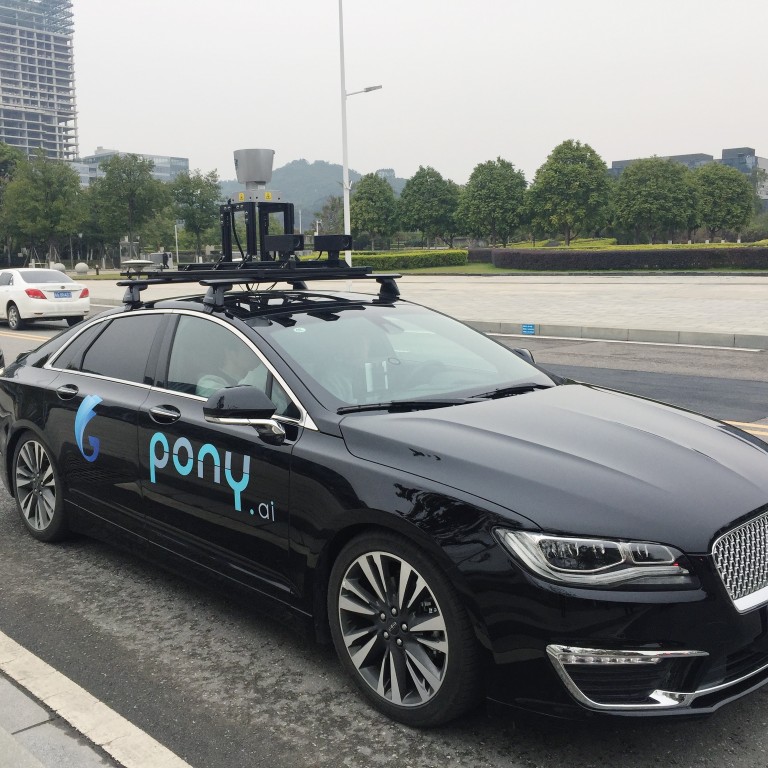
Pony.ai and Baidu still lag the likes of Waymo in US tests but the gap is narrowing in autonomous driving
- The annual disclosures offer an insight into how the industry’s leading players are progressing and how competition between the US and China is shaping up
Although China has strong hopes for autonomous driving and has beaten Apple in some areas, its leading company still lags Google’s self-driving unit Waymo in US engagement tests.
According to data disclosed in an annual report by the California Department of Motor Vehicles on Wednesday, drivers disengaged the autonomous driving mode on Apple’s test cars once almost every mile on average, making it one of the worst performers over a 12-month period through November, 2018.
Apple did not immediately respond to an emailed request for comment on its metrics in the self-driving report.
By contrast, Pony.ai, the front-runner among Chinese autonomous driving companies, reported human intervention once every 1,022 miles, according to the report which was based on self-submissions by companies. Chinese search engine giant and national artificial intelligence champion Baidu was next among Chinese competitors in the tests, with human intervention once every 205 miles on average in its self-driving cars.
Chinese companies still lag leading US companies in the field though, with Waymo drivers disengaging the auto-drive function roughly once very 11,000 miles and Cruise drivers once every 5,200 miles on average. The good news for Chinese companies though is that they are narrowing the gap, with Pony.ai noting an improvement from its disengagement metric of around once every 100 miles just 18 months earlier, when it first started test drives on California’s public roads.
Disengagement covers instances where humans manually disengage the car’s self-driving mode or when the autonomous driving function fails and automatically disengages. The annual disclosures, covering companies with a test permit in California for over a year – offer an insight into how the industry’s leading players are progressing with this new technology and how competition between the US and China is shaping up in this key application of artificial intelligence.
Earlier this week US President Donald Trump issued an executive order designed to “maintain American leadership in AI” and stave off technological challenges from China. The world’s two-biggest economies are currently engaged in talks to negotiate a truce in their trade war and Chinese telecoms giant Huawei Technologies is being pressured by the US in the roll out of global 5G mobile networks.
Of a total of 48 companies that submitted data on their test drives, about 11 companies are either headquartered in China or have their main operations in the country. The autonomous driving sector has drawn billions of dollars of investment over the past two years and this week, TuSimple, an Nvidia-backed self-driving truck start-up with dual operations in China and the US, announced it has raised US$95 million in a D funding round led by Sina Capital.
Pony.ai completed a US$214 million round of fundraising in July, while its rival Roadstar.ai raised US$128 million just two months earlier.

